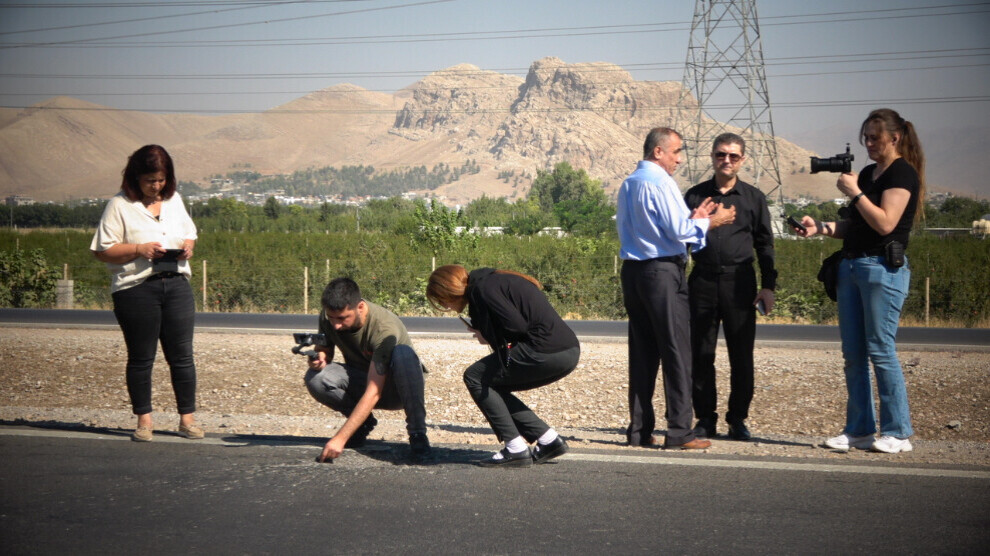Journalists examine the site where Hêro Bahadîn and Gülistan Tara were killed by a Turkish attack
A delegation of journalists from Europe examined the scene where the Turkish state killed journalists Hêro Bahadîn and Gülistan Tara in Sulaymaniyah.
A delegation of journalists from Europe examined the scene where the Turkish state killed journalists Hêro Bahadîn and Gülistan Tara in Sulaymaniyah.

Kurdish journalists Gulistan Tara (40) and Hêro Bahadîn (27) were killed on 23 August in a targeted drone attack by the Turkish state in the Kurdistan Region of Iraq (KRI). Six other media workers who, like their killed colleagues, worked for the free Kurdish press were injured, some seriously.
The journalists, who were on their way from Sulaymaniyah to the Hewraman region to film a programme, were targeted 52 kilometres from the centre of Sulaymaniyah on the road to Halabja.
The vehicle belonging to Chatr Production, which was targeted near the village of Hill Reş, was dragged 200 metres after being bombed and continued to burn.
At the location where the bomb fell, a 10-15 centimetre diameter and 4-5 centimetre deep hole was formed on the hot asphalt.
An international delegation of journalists has traveled to the Kurdistan Region of Iraq to find out more about the background to the murder of journalists Gulistan Tara and Hêro Bahadîn. Six media professionals from Europe, namely Alice Magar, Emma Audrey, Diler Akrei, Hendrin Faraj Mohamed, Jallan Ziaei and Devrim Alp, arrived in the metropolis of Sulaymaniyah on Sunday at the invitation of the Association of Kurdish Women Journalists (ROJIN).
The delegation visited the site of the massacre today.
Members of the delegation made examinations both at the location where the vehicle was struck and at the point where the vehicle stopped.
Speaking on behalf of the delegation, journalist Diler Akrei pointed out that the traces of the massacre are still fresh. Akrei stated that they would fight for the prosecution of those responsible for the massacre.
The delegation then visited Nanêbeyanî tea garden in Kanimanka village, where journalists had stopped for breakfast just before the massacre, and met with the owner.
After the meeting, the delegation visited the monument built for Gülistan Tara and Hêro Bahadîn in Azadî Park in the centre of Sulaymaniyah.
The delegation then visited Jasana, which was established in Sulaymaniyah to advocate for freedom for journalists, the Sharpress news agency and the Sulaymaniyah Journalists' Union,
During the meetings, the massacre and its aftermath were discussed and messages of solidarity and common struggle were given.
The delegation will conclude its talks today with a meeting with free press employees.